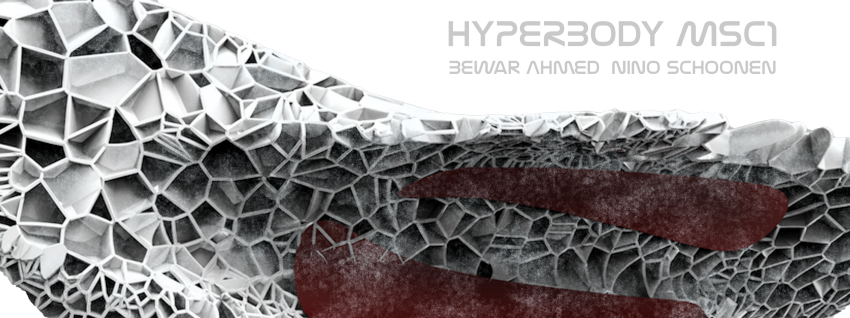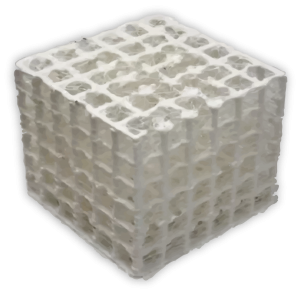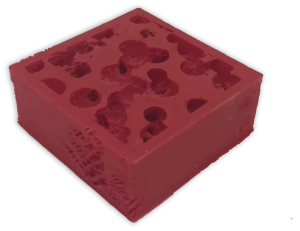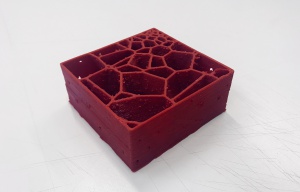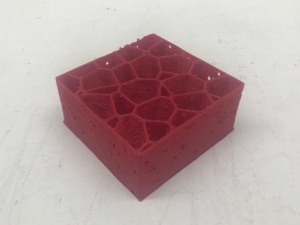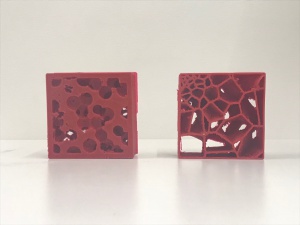Difference between revisions of "Msc1G4:Page4"
| Line 72: | Line 72: | ||
== Design to robotic Production == | == Design to robotic Production == | ||
| + | |||
| + | [[File:Voronoi_bend_0.JPG|300px]] | ||
<html><iframe src='https://gfycat.com/ifr/PastelSharpGrouse' frameborder='0' scrolling='no' width='560' height='318' allowfullscreen></iframe></html> | <html><iframe src='https://gfycat.com/ifr/PastelSharpGrouse' frameborder='0' scrolling='no' width='560' height='318' allowfullscreen></iframe></html> | ||
Revision as of 13:02, 1 February 2018
Prototype
Bewar Ahmed - Nino Schoonen
3D-Prints
.1 TPE 45D Experiment: Semi-Flexible TPE, Wireframe structure
It was right after our first wireframe experiment that we've noticed semi-flexible TPE (flexibility 45D) is way too strong for what we want to achieve. It is not (only) a matter of structure with this semi-flexible TPE, but material characteristics seemed to be of way more importance. This print recieves its flexibility through (accidental) mistakes which occured during the printing test: certain horizontal wires are not printed which make the structure actually bend in quite well, while remaining (almost) completely stiff by itself. Problematic can be the structural deformation on a bigger scale.
.2: TPE 85A Experiment: Flexible TPE, Spongeous structure
A flexibility value of 85A felt directly much softer. Sitting on this piece of 10x10x5 cm already felt comfortable while the structure is deforming slightly. A great value of this spongeous structure is that the printer can always print these spheres on top of eachother. This avoids toolpath manipulation that occured during the Voronoi test print.
.3: TPE 85A Experiment: Flexible TPE, Voronoi structure
The Voronoi structure was much harder than we expected it to be. Putting pressure on top of the structure barely shows any deformation, and feels not nearly as soft as the sponges structure we've printed earlier. Although putting the structure on the side allows the bigger Voronoi cells to buckle a lot, resulting in softness, although this softness is not as comfortable as we can achieve with the Spongeous print. In contrary to the Spongeous structure, this Voronoi structure requires less material, at the cost of comfort. The dense area of the structure proved to be very capable for dealing with load bearing parts, even with a flexibility property of 85A.
Design to robotic Production
